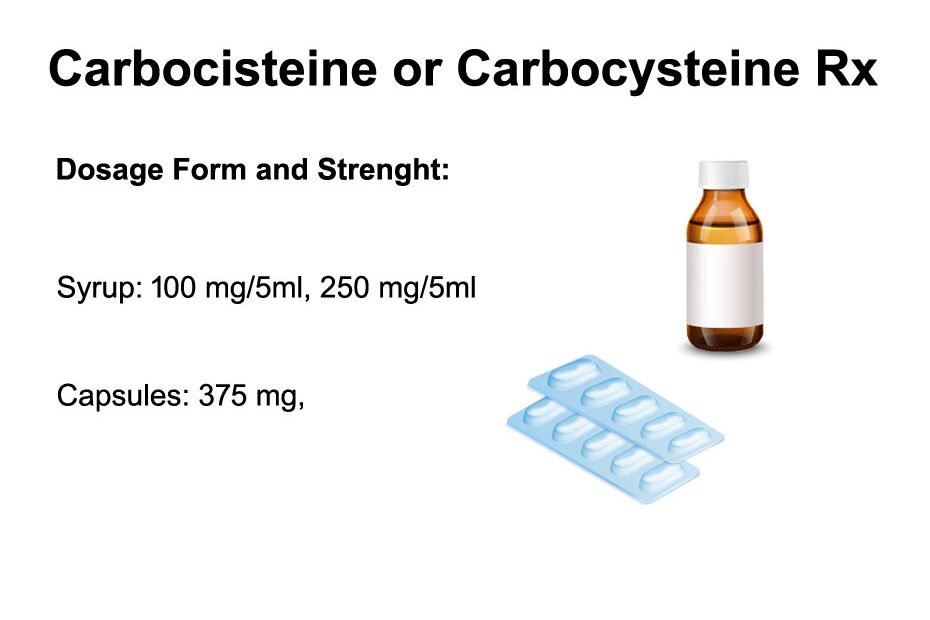Classes
Carbocisteine or Carbocysteine is a mucolytic agent
DAE Class; Rx
Common Brand Names; RHINATHIOL
- Expectorants
Description
Carbocisteine or Carbocysteine is a mucolytic agent and is used to reduce the viscosity of sputum.
Uses
Carbocisteine or Carbocysteine is primarily used in conditions like Advanced or metastatic breast cancer, Glue ear, Respiratory tract disorders.
Contraindications
No data regarding the contra indications of Carbocysteine is available.
Side Effects
The severe or irreversible side effects of Carbocisteine or Carbocysteine, which give rise to further complications include Gi bleeding, Convulsions.
The signs and symptoms that are produced after the acute overdosage of Carbocysteine include GI disturbances.
The symptomatic adverse reactions produced by Carbocisteine are more or less tolerable and if they become severe, they can be treated symptomatically, these include Dizziness, Headache, Nausea, Myalgia, Dyspnea, Palpitation, Skin rashesX, Psychiatric disturbance, Urinary incontinence.
Warnings
Carbocisteine should be used with caution in patients with history of peptic ulcer.
Drug should not be given to Pregnant Mothers, and Neonates.
Pregnancy and Lactation
Drug should not be given to Pregnant Mothers, and Neonates.
Maximum Dosage
Oral
Mucolytic
Child: 2-5 years Usual dose: 62.5-125 mg 4 times daily or 200 mg daily in 2 divided doses; 6-12 years Usual dose: 100 mg or 250 mg tid. Dosage recommendations may vary among individual products and between countries (refer to detailed product guidelines).
How supplied
Carbocisteine or Carbocysteine dosage form and strenght
Syrup: 100 mg/5ml, 250 mg/5ml,
Capsules: 375 mg,
